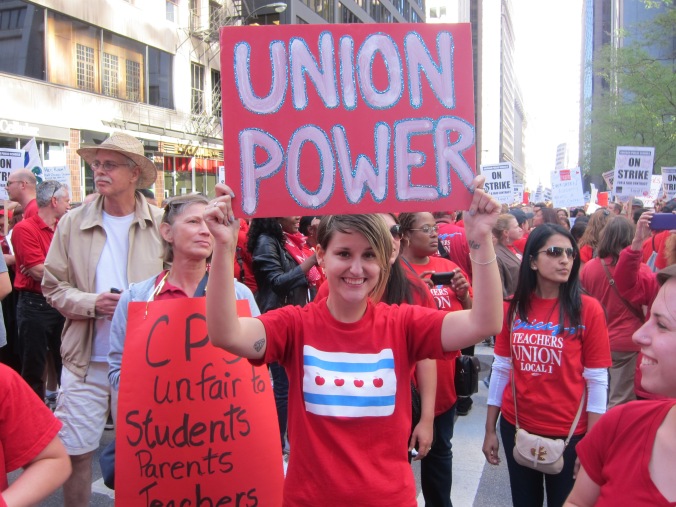In a democratic union you can’t short circuit democracy. Even in Chicago.

Over these next few days members of the Chicago Teachers Union will be voting once again on whether to authorize their leadership to call a strike against the those unelected managers of our city’s school system.
Strikes and strike authorization votes are part of the collective bargaining process. This vote is probably the most important part of the process. It does two things:
It makes every member a direct participant in the process.
It demonstrates the members’ support for their union and their union’s elected leaders.
Although I write about teaching and teacher unions and cover teacher union strikes, I mostly never comment of whether teachers should accept or reject a contract that I personally don’t have to work under.
Unlike those that sit in the fancy media offices downtown, I believe whether a contract is accepted or rejected is a decision that is owned by those directly represented at the bargaining table.
It was just a few years ago that Stand For Children’s Jonah Edelman, a guy who thought he was way too clever by half, got the Illinois legislature to pass a law requiring Chicago union teachers, and only Chicago union teachers, to In a democratic union you can’t short circuit democracy. Even in Chicago. | Fred Klonsky:
Chicago Teachers Union President Karen Lewis’ letter to members on the current strike vote. | Fred Klonsky - http://wp.me/p4C3g-h4p 
